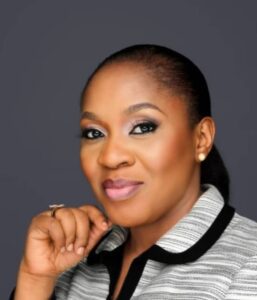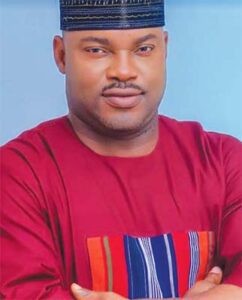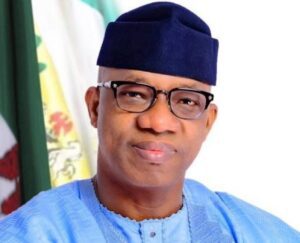
Tinubu is on the right path to win 2023 Presidential election — Festus Keyamo
Minister of State for Labour, Festus Keyamo, SAN, and Spokesman for All Progressives Congress (APC) Presidential Campaign Council, in this exclusive interview with Olaseinde Gbenga and Ariemu Ogaga, trailed the antecedents of the APC Presidential flagbearer, Asiwaju Bola Ahmed Tinubu. Describing him “as a wealth creator”, Keyamo said though they might appear stupid to many as drivers of the campaign, yet they strongly believe the former Lagos State Governor “is a genius” endowed with solutions to Nigeria’s problems for economic, agricultural, and infrastructural development. He urged Nigerians to cast their votes for Tinubu in the forthcoming 2023 elections, adding that he will bring on board fresh ideas to end insecurity and address the challenges of Nigeria’s economy. Excerpt:
You have been appointed as Spokesman for the All Progressives Congress (APC), Presidential Campaign Council, what do you think are the possible challenges and what would you do differently to achieve success?
I’m happy; I thank the leaders of APC for finding me worthy to lead the campaign on this front. I have a very strong contingent also behind me and I can assure you that the publicity department of the All Progressives Congress will be fully unveiled as time goes on. It is an assignment; I’m so glad the significance is not also lost on me.
The fact is that I did it in 2019 and they called me again to do it in 2023, and I know the responsibility on our shoulders is to achieve the best for our party. The reason why I want to do this is not just because I’m a party member; it is not just because I’m committed to promoting my party, but by heart, I’m convinced that we’re on the right path. Beyond all the noise and above all the noise in the press and in some sections of the social media, I’m convinced as a person having seen Nigeria wholly and entirely; having experienced different parts of Nigeria; having struggled from the street of Nigeria to the point of being a Senior Advocate of Nigeria (SAN), and to the point of being in cabinet, I’m convinced to the direction we should take as a nation. The only simple challenge I see is just to convince those who were not matured enough to know the antecedent of Asiwaju Bola Ahmed Tinubu. For those who were not born or matured enough during the time Asiwaju was the Governor of Lagos State, or for those who did not experience how Lagos was before, are the only challenge I see and we are going to overcome it. I see a lot of people now, some young people, who cannot enjoy night life in their states, who cannot enjoy good roads in their states, they run to Lagos. In Lagos, they go to the club in the night without hindrance and they are abusing Bola Ahmed Tinubu from the club in that night life. It is an irony because you are in a state where you are living in peace: You are abusing someone who was the father and architect of modern Lagos. I’m sure you know how Lagos was with insecurity in the late 1990s, you know the problem at that time in Lagos. At a time robbery in Lagos was a common thing as well as chaotic traffic in Lagos, the man applied two things. He raised the Lagos State Traffic Management Authority (LASTMA) which created jobs, and also he brought about Bus Rapid Transit (BRT) lanes. At that time, you cannot bring out a car out of Lagos without ‘Molue’ (Lagos old fashioned commercial large capacity bus) kissing you or ‘Danfo’ (Lagos popularly used commercial small capacity buses). At one point, the Federal Government opposed LASTMA. During his tenure in Lagos State, he (Tinubu) was fighting for Lagos and his people because there was a point the Federal Government said LASTMA does not have the right to police Lagos, when we have the right of Federal Roads Maintenance Agency (FERMA): Asiwaju went to Court against the Federal Government, saying you may own the Federal highways but the traffic on the Federal highway is a State responsibility and the Supreme Court agreed with him. At one point, the Federal Government said the whole of Ikoyi is a federal property, but Asiwaju said, to approve building on it is our responsibility and the Supreme Court granted it.
This is a man who saw a raging Bar Beach whipping the whole of Victoria Island (V.I.); people were packing out of V.I., properties went down. Before then, military administrators had tried to contain the upsurge; they were putting stones upon stones. Tinubu did not only check this surge, he saw a city on top of the river. He solved three problems, he contained the surge, dredged it so that the surge will not come up again and he built one of the best cities which is Eko Atlantic City. That is the ingenuity of this kind of man. People can see this and they are still abusing him inside Lagos. I’m proud to campaign for such a man. Some opposition said we look stupid for campaigning for Asiwaju and I told them I’m very proud to look stupid for campaigning for such genius man. I’m proud because all the geniuses in history have always looked stupid. Take a look at Isaac Newton to the person who invented the telephone, if not for these people, we would still be living in stone age life today: But some people sat down and think I can do something extraordinary with this my life. So, all the geniuses have always looked stupid. To them, we look stupid and I’m very proud to look stupid for Asiwaju. When you said the difficulties we are going to encounter while campaigning for Asiwaju, I don’t think the difficulty is just as exactly as what this man has done. When you call Eko Atlantic, they think that is how it was from the 1970s. The younger ones who don’t understand how that Bar Beach was, we need to show them the picture of what was going on there before, which extended to Victoria Island. The whole Banks there packed, left their glass houses and ran away. I don’t see the difficulty more than telling this to the younger ones. I have said this once and I will say it again that Asiwaju reminds me of a blacksmith who toils and toils and train his child to the university, pay his fees and afterwards the child graduates, he turns back to ask his father why his hand is so black and rough, that is what the Yorubas call a ‘bastard child’ –
You turned back and abused those who made it possible for you to be great. Without Tinubu, we would be running a one party state today. Tell the younger ones that at a point the People’s Democratic Party (PDP) wiped out all the parties in the south and Tinubu fought hard to keep only Lagos. At that point, the Peoples Democratic Party (PDP) said on a platter of gold he should come to PDP so that he won’t face problems.
There is this news resonating in the media space that Tinubu will continue where President Muhammadu Buhari stops. In this regard, how would you sell another APC presidential candidacy amidst worsen insecurity and poor economy, among others, bedevilling Buhari’s administration?
That is misquoting us, it is one of the spins that the media have been putting to our statements. I brought out a tweet last week and clearly explained it. A section in the media is just being mischievous. Arise TV is misquoting me everyday; I will say one thing and the next day they will carry it and begin to turn it upside down to abuse me. It is not true. I clearly itemised three different areas, the ones where we’ve excelled very well which is infrastructure. We’ve constructed rail, roads, bridges. We’ve done a lot in others like Agriculture. On legislation, we’ve signed the Petroleum Industry Bill (PIB); the Electoral Reform Act has been signed, ‘Not Too Young To Run’ has been signed. A lot of legislative actions went on. The PIB has been there for a long time. There’s a lot of legislative achievements. In all these areas we’ve done well and Asiwaju will come in to see if he can still improve on them because there’s nothing that is perfect. Tinubu will continue on those revolutions, among which are the train and the rail. For areas where we’ve tried to make some impacts, though, we’ve not fully succeeded, like Boko Haram in the North east, they have been reduced but have not been eradicated and that is a statement of fact. I’m not saying all the terrorism in the country have been reduced, which is what they quoted me deliberately, but I said Boko Haram Northeast (has been reduced); I mentioned the farmers/herders crisis in the Middle Belt. These are areas that have been substantially reduced but they have not been eliminated. Asiwaju will come and see whether he will continue along that path and/or bring his own fresh ideas. Now, the new challenges we are facing is banditry, kidnapping in the Northwest. That is where Asiwaju will bring fresh ideas if the plans we’re putting on ground now have not yielded enough as at the time we hand over. Government cannot finish everything, there’s a work in progress. For all the efforts that are ongoing now, that I know, because at a point the farmers-herders crises appear intractable, Boko Haram also appears intractable; so this one may also be the same just like the kidnapping in the Northwest. In 2012/2013, in the Southeast and South-south, there was madness about kidnapping, I could remember when prominent lawyers were kidnapped, and you can see those things have gone down. When Asiwaju comes in, he will bring his own fresh ideas for areas where we’ve not fully eliminated.
With the loss of the recent Osun gubernatorial election, what gives you the confidence that APC will be victorious in the 2023 general elections?
But we won Ekiti with more than a hundred thousand (100,000) votes. You are just mentioning one state. PDP lost Anambra and Ekiti, but they won Osun. The All Progressives Grand Alliance (APGA) won Anambra, they lost in Osun and Ekiti. APC won Ekiti, they lost Osun and Anambra. It is a simple arithmetic – win-lose, win-lose: But I think Osun is just local politics, It has nothing to do with the APC or the strength of Asiwaju in the Southwest. Osun will vote APC when it comes to the presidential election and that I’m confident and can bet with anybody.
Concerning the Muslim-Muslim ticket, what are you going to do differently to win the Christians’ votes for Tinubu?
I don’t think we’ve ever lost the Christian vote before. They only needed assurances that this wasn’t an agenda because of our recent advocacy here and there. You cannot even impose an agenda by such arrangement. Constitutionally, it is impossible, legally it is impossible and politically it is impossible. I think with all of those explanations, we’ve continued to assure our Christian brothers and sisters. I believe that in 2023, God has an agenda to bring all his children who are leaders in the church back to their core mandate which is to go and lead people to heaven not to Aso rock. Your mandate as a preacher and pastor is to lead people to heaven. There’s no mandate to lead people to Aso rock, no one should use religion to play politics. I pray they come back to their core mandate by 2023 because they are now dragging the church to where it shouldn’t be, despite some campaigning against us during the last general elections. When they lose in 2023 by the grace of God, you will understand that you have to separate politics from the Church. I thought they should have been wiser by now because 2015 and 2019 some of them openly campaigned against us and yet they lost. You don’t use religion to campaign. I think over time, before the election, we will keep assuring our brothers and sisters that this is just a winning team and it has nothing to do with despising Christians.
What will be your major strong point for Tinubu in terms of economy and the political turn around that he’s hoped to bring?
All these are contained in our manifesto. The manifesto, we are just tweaking it. It will be released very soon. It has always been ready more than 10-15 years, but because of changes in time and dynamics (it requires modifications). As I speak with you I just made my input. The documents will be released sooner. Let me just give you a head up that Asiwaju Tinubu is a wealth creator. He’s an expert in wealth creation and what the country badly needs now is about wealth creation. He’s someone who turned around the fortune of Lagos and the revenue of the State. Some people said the debt of Lagos also went up. Yes of course debt going up is an indication that you’ve now become credit worthy. With that heavy debt, no creditor is complaining. It is a different thing if creditors are complaining: But when people are now dashing you money and begging you to come and take, it shows the highest level of credit worthiness because of your capacity and response. So, that is a credit to us. The debt we are talking about is a credit to us not a minus to us. It shows the highest level of confidence that creditors now have in Lagos State. He’s a wealth creator and that is his strongest point, and like I said it is in the manifesto. And you can see people laughing at his manifesto and that is real. He talks about cassava and ‘agbado’ (corn) and that is a staple food in Nigeria. He’s talking about Agriculture already. Do you want him to talk about Pizza or Burger? Is that what you want him to mention? These are staple foods. Cassava is ‘garri’ (cassava flake);Maize is grain and this is going to solve our problems. This is what we eat. If you ask me what I will eat, I will tell you it is ‘cassava and Maize’ and what else because these are our national foods. When the bakers were complaining about the price of flour, they had to switch to cassava bread. If you think we should stop promoting our local foods, which is ‘cassava and agbado’, it is a big lie. We need to teach our young people this.



